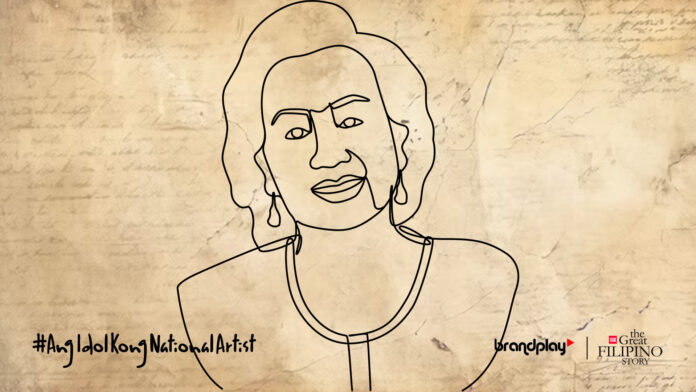Literature is one of the strongest parts of identifying the nation’s identity as it mirrors the cultural, social, and political state of the country. As words continuously spread their magic in recollecting important moments, it is important to remember how they evolved through the years.
Edith Tiempo graduated with honors from Silliman University in 1947 with a degree in Bachelor of Arts in English Education. She was declared as the National Artist for Literature in 1999 for her relevant contribution to the field of literature. She was known for her eagerness to deliver and for dedicating her craft to addressing issues in society.
After pursuing her undergraduate degree, she also secured a scholarship to the University of Iowa, where she took a Master’s degree from 1947 to 1950. Her quest for knowledge continued at the University of Denver, where she earned a doctorate in English language in 1958.
The seeds of her literary career were sown early in life, thanks in part to her mentor, Felix Umaging Brawner. Under his guidance, she was introduced to the works of influential authors such as Balzac, Gorky, and France. Inspired by these literary giants, Edith penned her first short story, “The Fan”. Additionally, her older sister, Arlyne, played a crucial role in her development as a writer. Arlyne not only shared literature with Edith but also facilitated her meeting with Edilberto K. Tiempo, her husband and an essential figure in her personal and professional life.
Edith’s contributions to the arts are characterized by a unique combination of artistic skill and deep thematic exploration. Her poetry employs beautiful language and striking imagery, illustrating profound experiences and emotions. Known for her clarity and detail, Edith’s writing avoids excessive description while maintaining a high literary standard. She often infused her works with moral depth, exploring significant social issues and employing creative methods to convey complex ideas.
Throughout her career, Edith’s poetry addressed critical social concerns, including poverty, inequality, and colonial oppression. She leveraged her writing to raise awareness and inspire action, particularly regarding women’s experiences. As a pioneering female writer, she broke barriers and challenged conventional gender roles, becoming the first woman to be recognized as a National Artist for Literature in the Philippines. Her recognition served as an inspiration for countless women aspiring to pursue literary careers.
In addition to her literary prowess, Edith was committed to fostering new talent in Philippine literature. Along with her husband, she founded the Silliman University National Writers Workshop in 1962, a creative writing program that has significantly influenced aspiring Filipino writers. The workshop has nurtured talent and creativity, evident in the growing number of applicants and the continued contributions of its alumni to the literary scene in the Philippines.
Ultimately, Edith’s legacy is one of excellence, advocacy, and inspiration. Her works not only enriched Philippine literature but also served as a vital voice for social change. Through her writing and mentorship, she has left an enduring mark on the literary community, encouraging future generations to share their stories. Edith’s life and work serve as a powerful reminder of the impact literature can have in addressing societal issues and empowering individuals.





